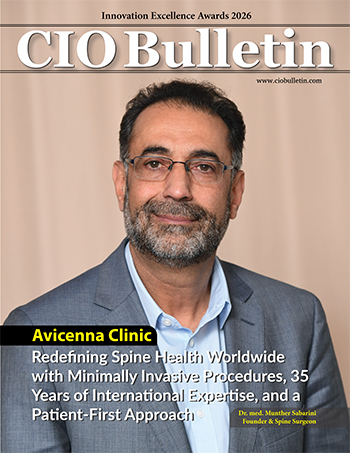Home Industry Lifestyle and fashion From Dependency to Independenc...
Lifestyle And Fashion

CIO Bulletin
26 December, 2024
The transition from relying on others to standing on your own often begins with a choice to ask for assistance in drug rehab programs, which are essential in supporting individuals on their journey to recovery by providing insight into how these programs function and paving the way for a better and healthier life ahead.
Grasping the First Evaluation
A successful path to recovery always starts with an evaluation at the beginning of the rehabilitation process by healthcare providers who assess both mental well-being, as well as past substance use and personal background information. This evaluation is crucial in shaping a customized treatment strategy at a drug rehab in Laguna Beach, CA or anywhere else that caters to individual requirements and enhances the likelihood of achieving healing.
Detoxing: A Stage in the Process
Detoxification is typically the first step in treatment. It focuses on removing harmful substances from the body under medical supervision to ensure a safe and comfortable withdrawal experience for individuals seeking support to rid their system of toxins. While detox is not a treatment approach, it sets a foundation for therapeutic interventions to follow.
Therapeutic Approaches
Rehabilitation programs provide various therapy options to tackle the underlying causes of addiction. One widely used method is Cognitive Behavioral Therapy (CBT), which is effective in helping people identify and alter negative thinking patterns. Group therapy sessions offer a setting for individuals to share their stories and gain insight from others' experiences. Family therapy is also beneficial in rebuilding relationships and creating a nurturing home atmosphere.
Methods That Take a Holistic Approach to Recovery
Many treatment programs, such as those offered at a Carrara luxury drug rehab center, go beyond traditional therapies and include holistic practices to enhance overall wellness and health outcomes for individuals in recovery. Yoga sessions, along with meditation and art therapy, are commonly integrated into these programs to assist individuals in rediscovering themselves and developing coping mechanisms. Engaging in these activities frequently leads to feelings of tranquility and equilibrium, which play a crucial role in the healing journey. Taking into consideration the interconnectedness of mind, body, and spirit allows for a holistic approach toward achieving recovery.
Essential Skills for Personal Growth
Recovery programs go beyond dealing with drug addiction and delve into teaching life skills that help people live independently after treatment ends. These programs often focus on training participants in budget management, career preparation, and effective communication. By gaining these skills, enrollees can boost their self-assurance and get ready for post-treatment life.
Strategies for Avoiding Relapse
Avoidance of relapse is an important element in the recovery process. This is often highlighted in rehabilitation programs that focus on creating effective coping mechanisms for dealing with triggers and urges to relapse. Individuals seeking to maintain their sobriety establish support systems, engage in physical activities, and set up daily routines to help them stay on track with their progress toward leading a sober lifestyle.
Post-Treatment and Ongoing Assistance
Finishing a rehabilitation program is not the end of the road for the recovery journey! Ongoing support through aftercare services is crucial for sustaining the progress made during treatment. Through check-ins, support groups, and counseling sessions, individuals can stay connected to resources that aid in recovery. Staying actively involved in a community boosts the chances of achieving long-term recovery goals.
The Importance of Peer Support
Peer support is crucial during the recovery process as it offers motivation and inspiration by connecting with others who have faced similar struggles. Engaging in support groups allows individuals to share their experiences and gain insights from both triumphs and setbacks. By fostering understanding and working toward objectives together, people can establish a supportive community that promotes encouragement and accountability among its members.
The Significance of Taking Care of Yourself
Taking care of oneself is vital for maintaining progress in the recovery journey. Developing habits and routines to keep a sense of balance and well-being is essential. Engaging in physical activity and eating well play significant roles in promoting overall physical and mental wellness. When individuals make self-care a priority in their lives, they are better able to build resilience and enhance their quality of life.
Welcoming a Fresh Start
Moving from relying on others to standing on one's own is a step in life’s journey for many people. Rehabilitation programs equip individuals with the resources and encouragement to start afresh. Despite facing obstacles along the way, individuals find solace in the possibility of a better tomorrow. Embracing this fresh start empowers individuals to take back control of their lives and flourish.
Summary
Grasping the elements and procedures involved in a drug rehabilitation program unveils the assistance provided to people seeking recovery. Starting from the evaluation to post-treatment support, each stage plays a vital part in nurturing self-reliance and overall health. With commitment, perseverance, and backing from a supportive community, individuals can effectively shift from reliance to a life of autonomy and satisfaction.

Insurance and capital markets







